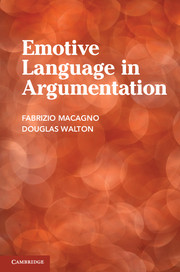7 - Metadialogues and Redefinitions
Published online by Cambridge University Press: 05 June 2014
Summary
Dialogue games provide rules to establish the relationship between a move and a possible effect on commitments. However, such games are highly abstract, and the moves are reduced to logical operations between symbols indicating sentences. The type of speech act performed is not considered, nor is the kind of relation between the predicates in the sentence taken into account. However, a statement affects the commitment store differently from an order or a reminder, and a relation of classification leaves to the interlocutor a range of possible rebuttals different from an analogical relation. In order to apply such games to actual dialogues, we need to go a step further and analyze the nature of the moves and the structure of the sentences. In this chapter we will apply dialogue games to a particular type of move, the act of defining or redefining. As seen in Chapters 3, 4, and 5, definitions can be distinguished according to their pragmatic nature and their propositional structure. In our dialectical approach, definitions can be thought of as moves in a dialogue game, which open different possibilities of continuation of the dialogue and refutation according to the definitional act performed and the type of definitional sentence. For this reason, we will examine the dialectical structures of the different types of definitional sentences and combine them with the commitment effects of the different acts of defining.
- Type
- Chapter
- Information
- Emotive Language in Argumentation , pp. 243 - 259Publisher: Cambridge University PressPrint publication year: 2014



